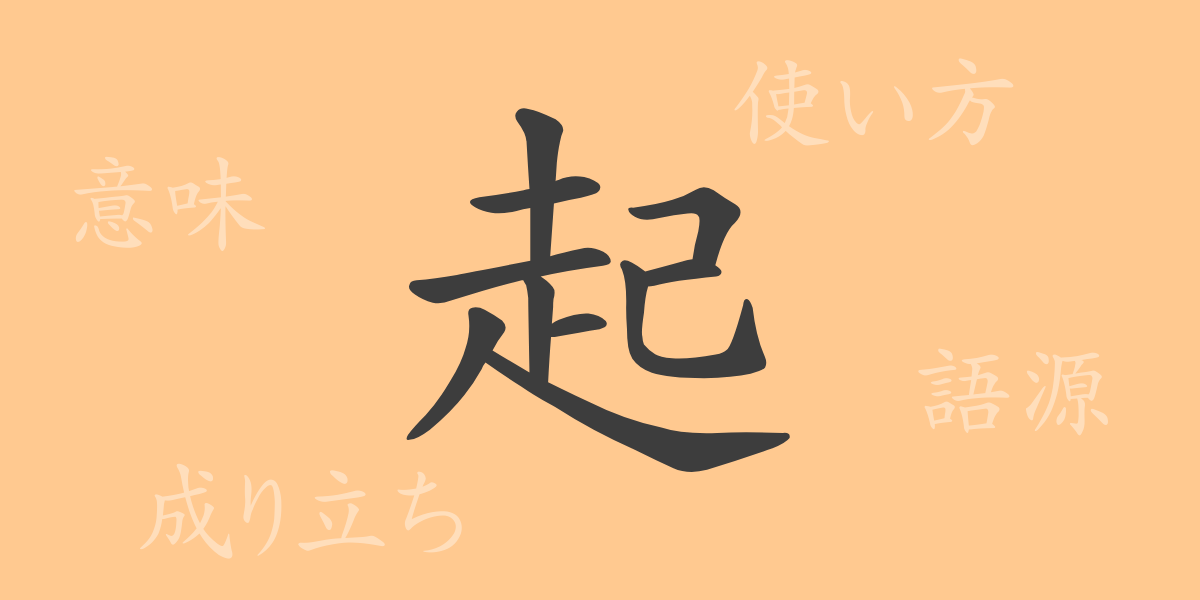The beauty of the Japanese language is significantly shaped by its complex and rich character system. Kanji (漢字), playing a central role, each possesses its own history and meaning. In this article, we will delve into the commonly used kanji “起” (き), exploring its origins to its contemporary usage. We will investigate how this kanji influences our language and culture, and explain its various usages and pronunciations.
Origins of “起” (起の成り立ち)
The kanji “起” (き) evolved from ancient Chinese pictographs. Originally, this character depicted the action of a person standing up, representing the concept of “beginning to move.” Over time, the kanji became more abstract and settled into its current form. However, its fundamental meaning has remained unchanged, signifying movements or changes such as “to rise” or “to begin,” and it is used in many languages, including Japanese.
Meaning and Usage of “起”
The kanji “起” (き) is a versatile character used in various scenarios, such as “to stand up,” “to begin,” or “to cause.” It can represent an action or refer to the occurrence of a situation. This kanji is characteristic for its utility not only as a verb but also as a noun and an adjectival verb in different contexts.
Pronunciations, Stroke Count, and Radical of “起”
The kanji “起” (き) holds intriguing elements for learners of Japanese in terms of its pronunciation and form.
- Pronunciations: On-reading is “キ” (ki), and kun-readings include “お.きる” (okiru), “お.こる” (okoru), “お.こす” (okosu), “た.つ” (tatsu), etc.
- Stroke Count: A total of 10 strokes
- Radical: Running radical (走部 [そうぶ])
Idioms, Phrases, and Proverbs Using “起” and Their Meanings
There is an abundance of idioms, phrases, and proverbs that include the kanji “起” (き) in Japanese. These expressions are deeply rooted in people’s daily lives and culture.
- 起床 (きしょう [kishou]): A common expression meaning “to get out of bed.”
- 起業 (きぎょう [kigyou]): Meaning “to start a new business,” often used in the business world.
- 起訴 (きそ [kiso]): A legal term meaning “to bring a charge or indictment.”
- 起爆剤 (きばくざい [kibakuzai]): Literally “a substance that causes an explosion,” but also used metaphorically to mean “a catalyst that accelerates a process.”
- 起死回生 (きしかいせい [kishikaisei]): A proverb meaning “to turn around a desperate situation.”
Conclusion on “起”
The kanji “起” (き) is an essential element that broadens the range of expression in the Japanese language. From its origins to its diverse contemporary uses, the depth and breadth of meaning this single character holds symbolize the dynamism of Japanese. From everyday conversation to business terminology, and even in law and literature, “起” (き) is undoubtedly one of the indispensable kanji in our language.

























